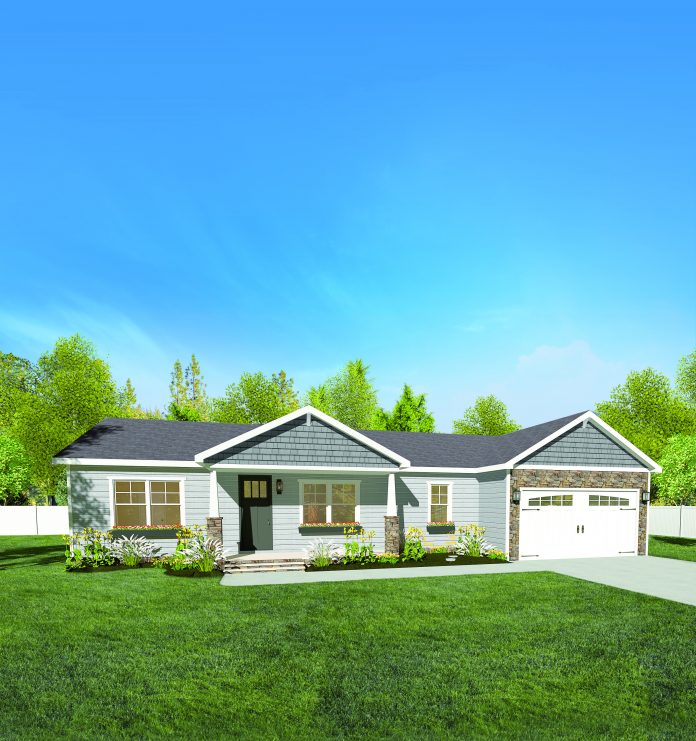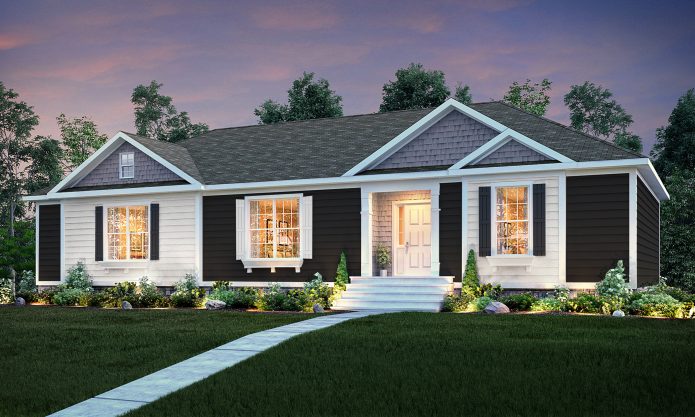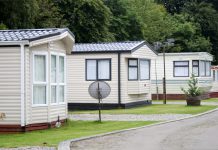MH Advantage Expands Access to Manufactured Housing
When we began implementing our Duty to Serve Underserved Markets plan in January, Fannie Mae called manufactured housing one of the largest affordable housing opportunities in the country. With starter home prices rising, and affordable homes increasingly in need of major repairs, we know that manufactured housing is a critically important piece of the affordable housing puzzle. And we believe that, with the right support, it can be a key component in tackling the affordable housing crisis.
Since that launch, Fannie Mae’s manufactured housing team has been hard at work building the foundation for our efforts in the coming years. And we’ve already rolled out some exciting initiatives.
Design, Materials, Add Ons Help Define MH Advantage
MH AdvantageTM is the most visible result of our efforts so far, and it represents one of the biggest changes to the way we approach financing for manufactured housing in years.
Initially announced in June 2018, Fannie Mae developed the program to encourage the broader use of manufactured housing as an affordable alternative to site-built homes.
MH Advantage offers attractive terms that have typically been available to site-built homes in the past, like down payments as low as three percent and reduced mortgage insurance requirements, to buyers of eligible manufactured homes.
What makes homes MH Advantage-eligible is a list of characteristics, developed by Fannie Mae in consultation with manufactured housing industry stakeholders, that help manufactured homes blend into more traditional neighborhoods:
- Construction elements, including durable siding materials.
- Roof treatments distinct from traditional manufactured homes, including higher pitch rooflines.
- Options for garages, porches and other desirable features.
Not only will these more generous terms and enhanced features make these manufactured homes more appealing and affordable for borrowers, MH Advantage also puts manufactured housing on more even financial footing with their site-built counterparts.
In addition to creating a new and appealing offering, we also put a lot of focus on the lenders. Knowing that a complicated origination process would be a deal-breaker for many lenders, we took the time to ensure that originating these loans would be quick and simple for loan officers. Our expectation is that these efforts will make manufactured home financing more broadly available, making it easier for homebuyers to purchase manufactured homes.
Positioning MH Advantage for Success
While there was a lot of enthusiasm about MH Advantage at launch, we quickly discovered that there were several aspects of the program that needed fine-tuning. With the help of our industry partners, we identified some parts of MH Advantage that we could update to make it more successful.
Our Selling Guide will be adjusted with requirements that will provide new direction to MH Advantage appraisers:
- When possible, appraisers will be instructed to use MH Advantage comparable sales for MH Advantage appraisals.
- If comparable MH Advantage homes are not available in the marketplace, then the appraiser will use the best and most appropriate other sales available, including sales of site-built homes.
These adjustments, as well as a handful of other revisions to the program, will make it easier to build and finance these homes and spur activity in what we believe is a promising opportunity for Fannie Mae and the manufactured housing industry.
As before, the initiative is open to all manufacturers who make HUD-certified manufactured housing and there’s no cost to join. For more information, and to see how to participate, visit FannieMae.com/manufacturedhomes or contact MH_Notices@fanniemae.com.
Exploring Chattel Finance
While Fannie Mae currently only supports manufactured housing titled as real property, our Duty to Serve plan also encourages us to carefully and deliberately consider a chattel loan pilot that would take place over the next two calendar years. Earlier this year, our regulator, FHFA, approved a limited Fannie Mae pilot to purchase chattel loans that will help us better understand the complexities of the marketplace.
This pilot is an extension of the research we have done to inform our possible efforts in chattel lending, which also includes a paper titled Key Legal Distinctions between Manufactured Home Chattel Lending and Real Property Lending. The paper, which is available on our website, will be critical in guiding our chattel lending strategy, as will the other research we are conducting in accordance with our Duty to Serve plan.
We have also invited lenders to share data on chattel loans, so we can see how they are structured and how they perform. Within Fannie Mae, we have gathered a diverse group of stakeholders across the organization to assess the risks and opportunities associated with chattel. This group helped to develop a preliminary set of standards and principles that will inform Fannie Mae’s activities in the chattel space.
While it’s too early to say whether any new Fannie Mae offerings will be developed from this pilot, we are excited to learn more about this type of loan that constitutes so much of manufactured home financing today.
Fannie Mae and the Future of Manufactured Housing
September marks nine months since Fannie Mae has been actively working to figure out how to advance manufactured housing under our Duty to Serve plan, but as much as we’ve done so far, this is only the beginning.
I can’t predict what the next two years will bring, but I’m looking forward to continuing work with the committed partners I’ve met in the manufactured housing industry.
Together, we’ll make homeownership accessible to more borrowers across the country.











